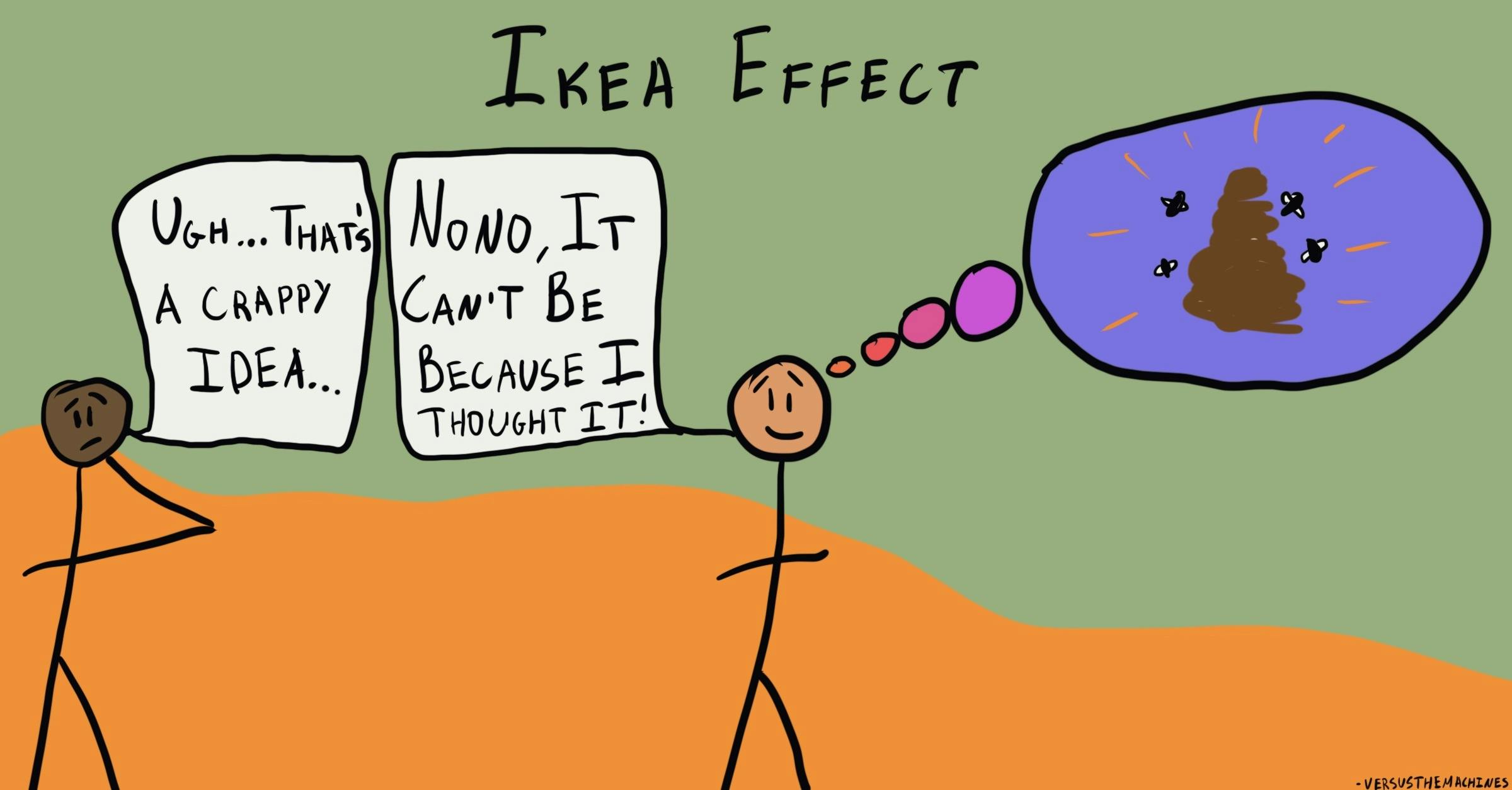Pourquoi accordons-nous une valeur disproportionnée aux choses que nous avons contribué à créer ?
Qu'est-ce que l'effet IKEA ?
L'effet IKEA, du nom du géant suédois de l'ameublement préféré de tous, décrit comment les gens ont tendance à apprécier davantage un objet s'ils le fabriquent (ou l'assemblent) eux-mêmes. De manière plus générale, l'effet IKEA montre que nous avons tendance à apprécier davantage les choses si nous avons fait l'effort de les créer.

Où ce biais se produit-il ?
Alex a décidé qu'il avait besoin de nouveaux meubles pour embellir son appartement. Il se rend donc chez IKEA et choisit une belle table basse dont le nom comporte de nombreux trémas. Comme pour tous les meubles IKEA, il les ramène chez lui dans un carton et les monte lui-même. Quelque temps plus tard, Alex déménage et décide de vendre ses meubles. Après avoir fait quelques recherches sur Google, il constate que des tables très similaires sont vendues en ligne pour 100 dollars, mais il décide de faire payer la sienne 125 dollars.